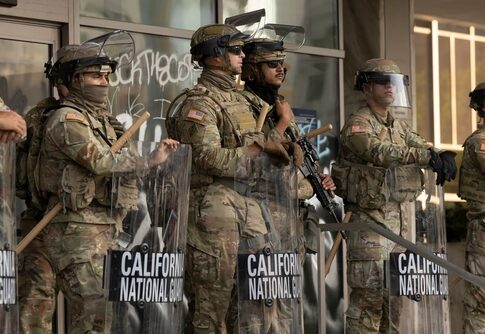President Trump’s warning to Illinois Governor Pritzker over Chicago’s violent Labor Day weekend revived the debate over federal intervention, state authority, and the future of public safety in America’s cities.
Trump’s Warning and Chicago’s Violent Weekend
On August 30, 2025, President Trump took to Truth Social to call out Governor Pritzker after at least eight people were killed and 48 wounded by gunfire in Chicago over Labor Day weekend. Trump labeled Pritzker “weak and pathetic,” warning, “He better straighten it out, FAST, or we’re coming!” This pointed threat included possible deployment of the National Guard and federal agents, reigniting conservative demands for decisive action while drawing sharp criticism from Democratic leaders who claim such a move threatens constitutional boundaries.
Governor Pritzker and Chicago Mayor Brandon Johnson quickly pushed back, framing Trump’s statements as politically motivated and possibly unconstitutional. Johnson issued executive orders restricting city cooperation with federal agents, especially on immigration enforcement. Pritzker warned that sending federal troops would be “an attack on the American people” and accused Trump of using the crisis as a pretext to interfere with elections. The confrontation escalated, with both sides rallying their bases and preparing for a potential legal fight over the extent of federal power in local law enforcement.
Federal Authority vs. State Sovereignty: The Constitutional Divide
The legal and constitutional questions at the heart of this standoff are complex. While the president can federalize the D.C. National Guard, state-controlled units typically remain under the governor unless specific conditions are met. Legal scholars predict that any attempt to override state authority in Illinois would be met with immediate court challenges. The situation draws from precedents in Los Angeles and D.C., where National Guard deployments faced intense local resistance and legal scrutiny, underscoring the ongoing tug-of-war between federal intervention and the preservation of state rights.
Experts warn that using the National Guard for civilian law enforcement is fraught with risks. Retired Maj. Gen. William Enyart has emphasized that Guard members are not trained for police duties and could face pay cuts if deployed this way. Such actions, critics argue, could inflame tensions, disrupt local economies, and undermine the very community trust necessary to restore public safety. Conservatives, meanwhile, argue that Democratic leadership has failed Chicago residents and that extraordinary measures are justified to prevent further tragedy.
Political Motives and the Battle for Public Safety
The clash between Trump and Pritzker is not just about Chicago; it is a microcosm of the larger national divide over crime, governance, and constitutional limits. Trump is leveraging the crisis to reinforce his tough-on-crime credentials and appeal to voters frustrated by years of rising violence and perceived government inaction. For many conservatives, this moment validates concerns about leftist policies, government overreach, and the erosion of law and order in major cities. Pritzker and Johnson, in contrast, are fighting to preserve local autonomy and resist what they see as federal intrusion into their communities.
This political standoff also sets the stage for upcoming elections, with public safety poised to become a central campaign issue. Both parties are using the situation to mobilize their supporters, deepen polarization, and frame the debate around constitutional rights, personal security, and the future direction of the country. The outcome of this confrontation could establish new precedents for federal involvement in local matters, with lasting implications for American democracy and the balance of power.
Broader Implications for Americans and Conservative Values
The ongoing violence in Chicago and the response from federal and state leaders raise fundamental questions for Americans concerned about safety, liberty, and the proper role of government. While the immediate crisis centers on one city, the principles at stake—including the preservation of the Constitution, the Second Amendment, and the autonomy of states—resonate nationwide. Many conservatives see the threat of federal intervention as both a necessary corrective and a potential slippery slope, highlighting the need for vigilance against any action that undermines core constitutional protections or empowers unelected bureaucrats over elected officials and the will of the people.
Trump Slams Pritzker After Chicago Violence: ‘He Better Straighten It Out, FAST — or We’re Coming!’https://t.co/jFJWWB4bh8
— G_Kraig (@g_kraig) September 1, 2025
As legal and political maneuvering continues, the nation watches closely. The debate over how best to restore order, protect communities, and uphold American values is far from over. What happens next in Chicago could shape the national conversation on crime, government power, and constitutional rights for years to come.
Sources:
Trump warns Illinois Governor to fix Chicago or ‘we’re coming’ (Anadolu Agency)
Labor Day violence in Chicago prompts Trump National Guard warning (Fox 32 Chicago)

